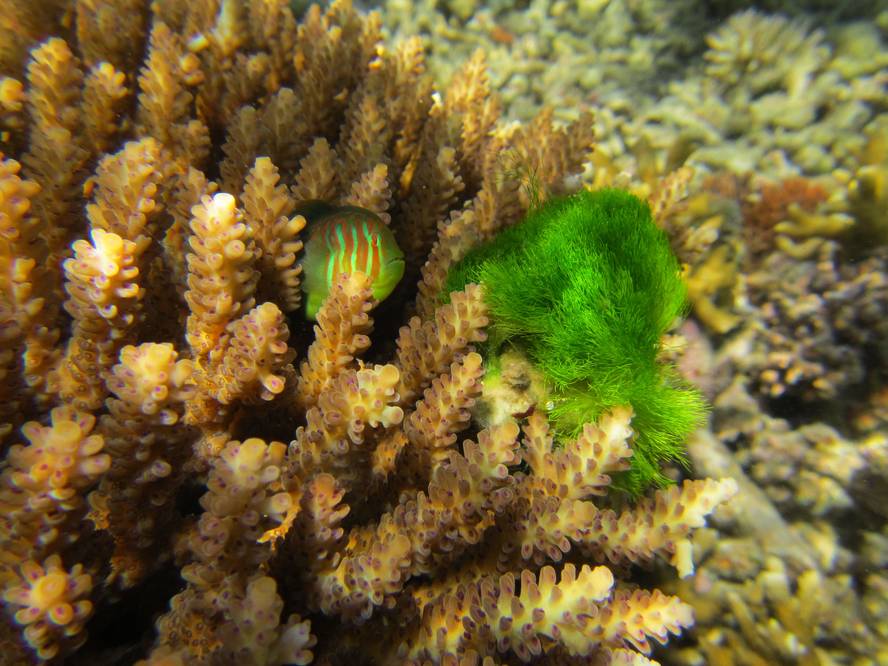Corals ask fish to help eliminate algae

The coral Acropora is nasuta; the fishes Gobidon histro and Paragobidon echinocephalus; and the algae Chlorodesmis fastigiata. Seaweed is toxic to coral, especially when it touches. The fish survive sheltered from the coral reefs and, when the coral demands them, accompany him with the algara. In experiments conducted on the island of Fiji, researchers have measured a large difference between corals occupied by fish and corals without fish. In the occupied areas the number of algae was reduced by 30% and 70-80% the damage suffered by coral, according to the journal Science.
To demonstrate that the fish respond to the chemical signals of the coral, the fish were placed in three types of water: there were only algae in the water, in the contact water between the seaweed and the coral, and 20 minutes earlier in the waters near the coral. The fish only reacted in the last two cases. Even when they were placed around other coral species affected by the algae, the fish did not respond. Consequently, researchers consider this to be a specific, local mutualist relationship.
Also, researchers have discovered that one of the fish, the Gobido Stepson, becomes more unpleasant for predators after eating algae. It is the only one who eats algae — the other just gives it bites — and it seems that the toxic “smell” of algae helps him defend himself from predators.
This type of chemical interviews between mutualist species are more common in the nature of what was thought a few years ago, we have it in the reports “Chemical speakers”.





